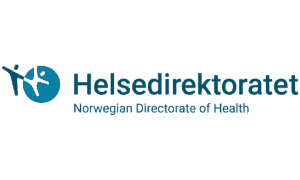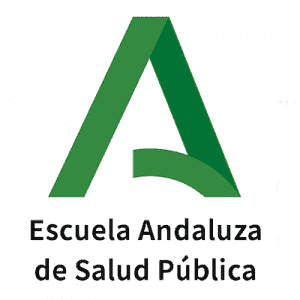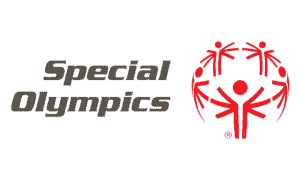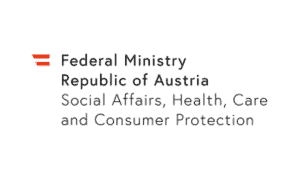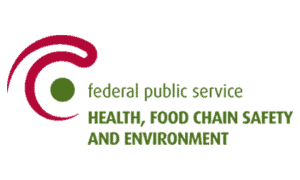Members and Associate
Members
EuroHealthNet Members are national and regional institutes, academic and research centres, national and regional authorities, as well as government departments and some civil society organisations.
Members
EuroHealthNet Members are accountable public bodies with responsibilities and/or expertise in public health, health promotion, health inequalities, disease prevention, or other relevant fields. They are part of all three EuroHealthNet platforms, and enjoy additional core member services as well. They set the direction of the Partnership.
Austria
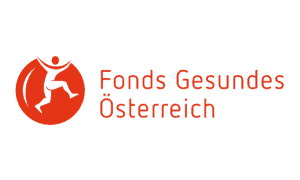
- Maintaining, promoting and improving the health of the population in a holistic sense and at all stages of life.
- Education and information on preventable diseases and physical, mental and social factors affecting health.
Derived from the Health Promotion Act, the FGÖ defines its role in the health promotion landscape as a funding agency, competence centre and turntable. The concrete definition of these interlinked roles, resulting tasks and intended benefits are:
- Funding Agency: The FGÖ is the national funding agency for health promotion projects in Austria.
- Competence centre: In cooperation with stakeholders and actors in health promotion, the FGÖ develops and disseminates knowledge, develops skills and quality in the field of health promotion.
- Turntable: The FGÖ promotes the exchange of practice, science and politics in the field of health promotion.
Belgium
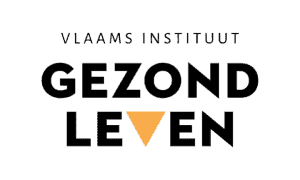
Gezond Leven uses the following strategies to optimise health promotion and disease prevention in Flanders:
- Supporting professionals and their organisations by providing methodologies, strategies, advice and training
- Raising awareness among target groups
- Supporting local implementation of Flemish preventive health policy
- Making efforts towards healthier policies at every level and in every sector
- Encouraging cooperation between professionals and all those working in health promotion and disease prevention or who have an influence on human health
The Flanders Institute for Healthy Living is an expertise centre for health promotion and disease prevention. It provides strategies, advice, methodologies, support of implementation and training for health workers and professionals. These are aimed at all those involved in health promotion and disease prevention. It is for both front-line workers and policymakers.
Our experts develop ready-to-use packs with a strong scientific foundation. These support the work done by health professionals. The Flanders Institute for Healthy Living fulfills a link function between the theory and practice of health promotion.
The Flanders Institute for Healthy Living works closely with the LOGOs (Lokaal GezondheidsOverleg, local deliberation on health), thereby supporting local activities around the six Flemish health targets.
AVIQ is responsible for major policies: Wellbeing and Health, Handicaps and Family.
Wellbeing and Health
- Reimbursement of health-related social security benefits in nursing homes
- The organisation of the first line of care and home care
- Disease prevention and health promotion
- funding of hospitality and accommodation facilities as well as hospitals
Disabilities
- disability awareness and information
- Home planning assistance
- Financing employment opportunity policies
Family
- The definition of family allowance subsidies
- management of the budget and relevant budget lines.
Bulgaria
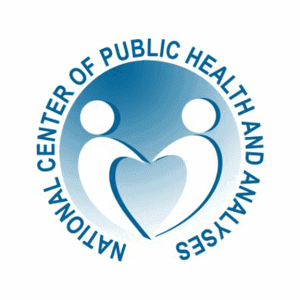
In conformity with its main activities for the purpose of protecting and promoting health the NCPHA examines the population’s health status and the relationship with environmental factors and living conditions; conducts epidemiological surveys and evaluates risk factors for chronic non-communicable diseases; participates in the development, coordination and performance of national programmes and action plans as well as in international research programmes oriented to strengthening public health (including mental, reproductive and sexual); carries out intervention activities, training workshops and publishes information and methodical materials; assesses exposure and health risk for the population from the impact of biological, chemical and physical hazards on the ambient and working environment as appropriate recommendations have been prepared; conducts monitoring on nutrition and nutritional status of the population and develops Manuals for nutrition of target population groups.
The NCPHA leads, controls, monitors and coordinates information activities in the healthcare, develops and unifies the medical and statistical documentation for the population health status and for the resources and activities of hospitals; develops mathematic models and prognoses for the demographic and health status of the population; provides current and annual medico-statistical and economic information; accomplish activities on the development of unified health information system and electron healthcare; elaborates and implements a system for classification of patients and reporting and payment technologies; maintains classifications, nomenclatures, standards and methodologies; participates in the realization of statistical activities of the nation as having collaborated with the National Statistical Institute; maintains, updates and publishes health information standards; organizes, coordinates and controls activities for developing electron healthcare; elaborates methods and models for planning and management of resources for hospitals; develops, implements and maintains national standards of coding in hospitals and monitors the process of coding.
The mission of the NCPHA is to integrate these diverse activities into achieving good health benefits for the population. All the efforts of employees in the NCPHA – specialists with academic ranks and degrees, experts and technical personnel – are oriented to applying modern technologies in the field of public health and occupying a leading place in the national healthcare.
Czech Republic
The National Institute of Public Health is a contributory organization of the Ministry of Health.
The Institute’s aims comprise science and research, reference and methodological advice, providing expert opinions on the health safety of various products (e. g. cosmetics, food supplements, items of daily use etc.), systematic monitoring of the environmental impact on population health in the Czech Republic, preparation of legislation in the field of health protection, including harmonization of Czech legislation with the norms of the European Union.
England / United Kingdom
Engages with EU Institutions and European partners to develop a strategic approach to EU policy development on behalf of our stakeholders.
- Delivers a programme of European learning opportunities for staff, developing understanding and building collaborative relationships with European partners.
- Works with EU partners to identify and assess relevant EU legislation and inform our stakeholders if its impacts for their organisations.
- To ensure the good management of the Centre, in accordance with all relevant European and national legislation and policies.
Services:
- Opportunities for learning and sharing good practice across Europe (for example through workshops, conferences, study tours and exchanges);
- Practical examples of different ways of working from across the European Union;
- Development of EU partnerships to promote Kent and Medway health and social care to key decision makers and institutions;
- Advice and help for stakeholders to develop, implement and manage EU projects;
- Intelligence gathering and dissemination through regular bulletins and briefing papers on health and social care topics;
- Advice to stakeholder organisations on relevant EU policy developments;
- Facilitation of workforce development opportunities (such as deployment of staff to other EU countries and access to EU learning programmes).
Finland
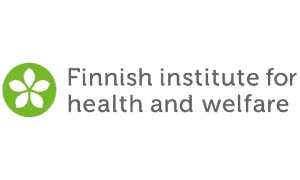
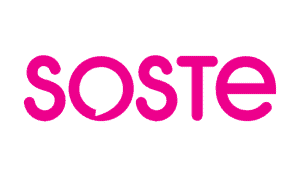
The purpose of SOSTE – Finnish Society for Social and Health at regional, national and European level is to:
- Function as an expert and advocate for social and health politics
- Function as a not-for-profit organisation building the conditions for social well-being and health, people’s participation and a just and responsible society individually and in cooperation with its member organisations and other parties
- Enhance the ability of registered social and health non-governmental organisations to operate in the best interests of the people
- Promote social well-being and health
- Build social justice and equity
- Strengthen people’s fundamental rights and possibilities for participation and involvement.
France

Santé publique France will serve the population in all aspects of public health based on scientific knowledge, data, and information.
It will support the government and society in improving the health and well-being of the population. It will apply a population-based approach with the objective of reducing social health inequalities in all areas of public health: Infectious diseases; Non infectious diseases; Environmental health; Occupational health.
The agency is present throughout the national territory with regional units, including oversea territories, and works hand to hand with the Regional Health Agencies (ARS).
Santé publique France will:
- Analyse up-to-date knowledge and data on the determinants of health and risk factors.
- Provide decision makers at all levels with independent evidence-based guidance and recommendations. It will be supported by expert committees.
- Propose measures to health authorities to protect the population from health threats.
- Develop evidence-based interventions for prevention and health promotion.
- Contribute to preparedness and management of health crisis, and provide support for the implementation of response plans.
Operating as a network, cooperation with partners and health professionals enables to combine strengths.
Openness and dialogue with stakeholders and the civil society is one of the founding principles of Santé publique France.
The agency will have 4 committees:
- A Management Board
- A Scientific Council
- A Public Health Ethics and Professional Conduct Committee
- An Openness and Dialogue Committee.
Germany
Inform, motivate, support – for healthy behaviour and healthy living environments.
Federal Institute of Public Health (BIÖG) is a higher federal authority and departmental research institute within the portfolio of the Federal Ministry for Health (BMG), based in Cologne, Germany.
BIÖG is responsible for health promotion and disease prevention in Germany. It communicates reliable knowledge on health issues and promotes healthy lifestyles and health literacy among the general public. To this end, it devises strategies and turns them into evidence-based campaigns, programmes and other activities.
Greece
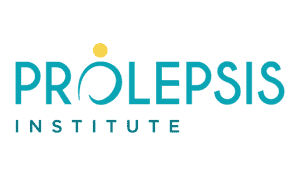
Among Prolepsis’ main objectives is to organize and implement research and educational projects. The Institute also aims at the dissemination and promotion of knowledge on preventive medicine, health promotion and research methodology. It participates both as a coordinator and a partner in several European public health projects and implements applied health promotion initiatives in cooperation with national and European institutions. In addition, it organizes scientific meetings, seminars and conferences for specific occupational groups, e.g. health professionals, as well as the general public, either independently or in collaboration with universities and scientific bodies in Greece and abroad, such as the Harvard School of Public Health.
Hungary
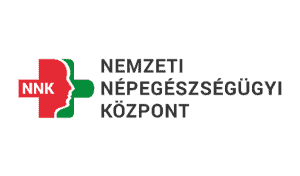
In order to fulfil the public health goals set out in the legislation, NNGYK performs managing, coordinating and supervising activities related to public health (especially environmental and settlement health, food and nutritional health, child and young health, radiohygiene and chemical safety), epidemiology, health development (health protection, health education, health promotion), and public health administration, as well as supervision of healthcare provision. Furthermore, on the basis of delegated competence NNGYK carries out tasks and duties relating to occupational health (workplace hygiene, occupational medicine), exercises and executes private law rights and duties in the field of occupational health.
NNGYK is managed by the Chief Medical Officer (CMO). The CMO is involved in exercising powers granted to the Minister as professional manager over the government offices of the capital city and of the counties (hereinafter: government office) and the subregional (or district) offices acting in their public health function (hereinafter: subregional office).
Ireland
The Institute of Public Health works to promote health and wellbeing, improve health equity, and reduce health inequalities throughout the life course.
The Institute has researchers and policy specialists from a range of disciplines based in offices in Dublin and Belfast.
The Institute works with national and local government departments, and have established partnerships with public health schools, clinical and academic institutions, and community organisations on the island of Ireland, in the UK, EU and globally.
As a North South body, partnership working on the island of Ireland is a priority for the Institute.
Italy
The Istituto Superiore di Sanità (National Institute of Health), also ISS, is an Italian public institution that, as the leading technical-scientific body of the Italian National Health Service, performs research, trials, control, counselling, documentation and training for public health. The institute is under the supervision of the Ministerio della Salute.
Departments
- Environment and Primary Prevention
- Cell Biology and Neurosciences
- Haematology, Oncology and Molecular Medicine
- Therapeutic Research and Medicines Evaluation
- Infectious, Parasitic and Immune-Mediated Diseases
- Veterinary Public Health and Food Safety
- Technology and Health
National centres
- National AIDS Centre
- National Centre for Chemical Substances
- National Centre for Epidemiology, Surveillance and Health Promotion
- Centre for Immunobiologicals Research and Evaluation
- National Centre for Rare Diseases
- Evaluation and Accreditation Body
- National Blood Centre
- National Transplant Centre
Technical Services
- Service for Biotechnology and Animal Welfare
- Data Management, Documentation, Library and Publishing Activities


The Veneto Region is situated in the North-Eastern part of Italy and it is divided into seven provinces with about 4,7 million inhabitants living in 580 municipalities (2006). About 71% of the population live in towns with fewer than 30.000 inhabitants and the average population density is 244,2 per km². The percentage of foreign citizens resident in the Region is about 6,8% (2007). The Veneto has a positive growth rate (0,5%) and a growing population above the age of 65 (17,5%). The GDP (2005) per capita is 27.691 € higher than the Italian average (23.474 €). The expenditure in R&D is 0,59% of the GDP.
The Regional Government is based in Venice.

The Tuscan health system includes three Local Health Authorities and four university hospitals:
- Central Tuscany: Local Health Authorities (Florence, Prato, Pistoia, Empoli)
- Northwest Tuscany: Local Health Authorities (Lucca, Massa e Carrara, Versilia, Pisa and Livorno)
- Southeast Tuscany: Local Health Authorities (Siena, Arezzo and Grosseto)
- University hospital Careggi (Florence)
- University hospital Meyer (Florence)
- University hospital of Pisa
- University hospital of Siena
The health system is the sector to which the region commits the largest share of its budget and organizational structure, and constitutes an infrastructure of services and activities that can generate positive effects throughout the region. It is, in spite of and even more so in a period of economic crisis, a driving force of development for the entire regional economy, in which economic development is seen not as an end in itself but also includes, in a context of sustainability, measures tied to the social sector and the environment. Regione Toscana is also actively involved in the promotion of the Tuscan Life Sciences Cluster for large and small companies operating in the sector.
Regione Toscana has a long-standing tradition of activities to promote wellness, including healthy diets and physical activity. The latest version of Regione Toscana’s multi-year health plan includes a major focus on “health in all policies”, i.e. the promotion of healthy lifestyles across all sectors (urban planning, environment, welfare, transportation, commerce, schools, culture, sport, etc.). The project team will include colleagues in other relevant sectors of the regional government as well as the region’s associated health agencies for specific expertise on obesity; expertise in the management of European projects will also be present.


Who we are
We are a documentation center established by the Region of Piedmont in 1998. Working at the center is a group of professionals in documentation, communication, planning, training, and evaluation.
Vision
We help to disseminate the culture and practice of health prevention and promotion and we support actions for their sustainable development.
Mission
We provide access to robust and up-to-date documentation of the efficacy of public health projects and interventions through the Health in All Policies approach. We facilitate processes of knowledge transfer and exchange (KTE). We provide data, scientific evidence, regulations, models and tools, good practices and training courses for planning, managing, and evaluating health prevention and promotion interventions with an equity focus.
Mandate
We provide Piedmont regional government and Local Health Units with the necessary scientific, methodological support for health promotion and prevention actions and strategies. In addition, we help decision makers and health practitioners to improve their skills through:
- Participation in work groups and local, regional, and international networks and projects
- Translation, summarizing, and adaptation of documentation
- Dissemination of social marketing and health communication strategies
- Database creation and management
- Evaluation of projects and good practices
- Training and continuing professional education in health prevention and promotion
- Management of a specialist periodicals library
Principles/Values
Our guiding principles are:
- The principles of scientific transparency and independence, as we belong to no organization with vested interests that could bias our activities.
- The recommendations outlined in the Ottawa Charter (1986) and the Shanghai Declaration promoting health in the 2030 Agenda for Sustainable Development and the WHO/Europe Health 2020 strategy.
- Core competencies and professional standards for health promotion practitioners required by the accreditation system CompHP. Developing competencies and professional standards for health promotion capacity building in Europe (International Union for Health Promotion and Education – IUHPE, 2012)
Target audience
Our target audience is composed of people interested in individual and community health and well-being, particularly the practitioners and professionals in the health care, education, social and culture sectors and the administrators and decision makers at local, regional, and national levels in:
- Regional governments and local authorities
- Local health units and hospitals
- Ministry of Health and Istituto Superiore di Sanità
- Regional and local school offices and schools of all levels
- Universities and research institutes
- Third sector agencies
Latvia

- To reduce the incidence of non-communicable diseases, including addiction prevention;
- To improve people’s knowledge about healthy lifestyles ;
- To promote a healthy and safe city , learning and working environment;
- To improve health care services for the city of Riga.
To ensure that the objectives defined in the strategy are introduced, Riga’s city council approved the Action Plan for the implementation of the strategy in 2012 -2016 , the Action Plan aims to promote interdisciplinary collaboration on public health and to introduce the “health in all policies ” concept in the municipality of Riga. The aim of the local government is to create conditions in which the healthy choices for the population are easily accessible and convenient.

CDPC of Latvia goals are to strengthen Latvia’s public health system, prevent diseases, including infectious and rare diseases.
CDPC of Latvia goals are to implement national public health policy in the field of epidemiological safety and disease prevention, to ensure the implementation and coordination of health promotion policies.
Functions of The Center for Disease Prevention and Control:
- to perform epidemiological surveillance and monitoring of infectious diseases, registration, investigation thereof, collection of statistical data on infectious diseases, to organize measures for prevention of infectious diseases and limiting the spread thereof;
- to participate in the management of emergencies and prevention of epidemic (pandemic) threats;
- to plan, coordinate and monitor implementation of the immunization program, to plan vaccination of the population, to compile vaccine orders by bodies responsible for vaccination and prepare vaccine orders for medicinal product wholesalers, to provide vaccination monitoring and preparation of statistical data, to perform epidemiological investigation of cases of vaccination related complications;
- to establish and develop a national information and monitoring systems for HIV, HBV, HCV and other infections and coordinate the operation of the referred-to system;
- to organize storage, inventory and distribution of immunobiological preparations to medical treatment institutions;
- to cooperate with State and local government authorities, non-governmental organizations, individuals and international authorities in the field of epidemiological safety by providing exchange of information and experience, training and implementation of joint projects;
- to ensure cooperation with the World Health Organization, the European Commission, the European Centre for Disease Prevention and Control and public health authorities of other countries in the epidemiological surveillance issues of infectious diseases and other epidemiological safety issues, to provide maintenance of the functioning of the Early Warning and Response System and its coordination in the State;
- to develop methodological recommendations and provide methodological support to medical treatment institutions, local governments and other authorities in the field of epidemiological safety;
- to acquire, compile, process and analyse statistical information on public health and health care;
- to perform the public health monitoring;
- to ensure the function of the State specialised centre for the membership in the European information network on drugs and drug addiction (Reitox) maintained by the European Monitoring Centre for Drugs and Drug Addiction;
- to exchange information about risk-assessment and control of new psychoactive substances, to ensure the information exchange between the State specialized centre and the European Monitoring Centre for Drugs and Drug Addiction on the production, illicit trafficking and use of new psychoactive substances and preparations containing new psychoactive substances;
- monitor non-infectious diseases, as well as to evaluate the environmental factors which may affect the health of the population.
Luxembourg
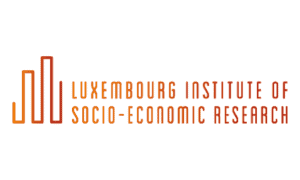
The research activities of the Institute are carried out by three research departments labelled “Labor Market”, “Living Conditions”, and “Urban Development and Mobility”. In addition, the survey and data center team is in charge of data collection through face-to-face and online surveys, research in survey methodology and survey statistics, as well as creation and management of databases in social sciences.
The Institute employs 138 people, of whom 72 are researchers and PhD candidates. The research team is representing a high degree of interdisciplinarity and includes demographers, economists, geographers, legal experts, political scientists, psychologists, social scientists, and statisticians.
Netherlands
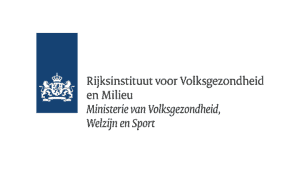
Pharos is the national centre of expertise on health disparities/equity. Its expertise focuses on
- Sustainable improvement of the quality, effectiveness and accessibility of care and prevention for people with limited health literacy, migrants and refugees.
- Reducing health disparities that exist between different groups of people.
- Exhange of knowledge and expertise with other health organisations in Europe is essential in the approach of health disparities/equity and prevention.

The work of the Trimbos Institute encompasses mental health problems and addictions for persons between – 9 months and 90 + years old and also include interventions targeted at environmental influences, informal caregivers, and family members.
The work of the Trimbos Institute is primarily geared towards the general population through monitoring and health promotion efforts. Trimbos also works with and for specific target groups or at-risk groups, the main five areas are common mental health problems, severe and enduring mental ill health, tobacco, alcohol and drugs.
Specific activities of the Trimbos Institute are:
- to detect and monitor mental health problems and addictions through (international) large-scale epidemiological and monitoring efforts in order to keep policymakers, politicians, health professionals and service users informed about the mental health of Dutch and international populations;
- to develop new offline and online treatment methods, quality standards, practice guidelines, health interventions and disease prevention programs;
- to assess and evaluate the cost-effectiveness of mental health and addiction services in the Netherlands and abroad;
- to provide training and professional development resources to a wide range of audiences across sectors at the local, national and international level;
- to promote public health education about mental health problems, substance use, and addiction; and
- to encourage knowledge sharing and exchange by facilitating contacts between organisations and individuals at local, national and global levels.
Norway
The Norwegian Directorate of Health aims to better the quality in the health service and to promote factors that bring good health to the population.
The Directorate of Health aims to improve the health of the citizens and the community as a whole through targeted activities across services, sectors and administrative levels. The Directorate does so by virtue of its role as a executive agency, as a regulatory authority and as an implementing authority in areas of health policy. The directorate is an executive agency and professional authority under the Ministry of Health and Care Services.
Poland

NIPH-NIH, which is the oldest public health institution in Poland, was created just a few days after the proclamation of the independence of Poland, on 21 November 1918. Together with changes in health and political situation and the development of medical science, the Institute’s functions were also evolving. It has always, however, been performing activities, of a practical and intervention as well as scientific and training nature, in several domains of public health.
Portugal

The Ricardo Jorge Institute is organized, in technical-scientific terms, in six major departments:
- Department of Food and Nutrition;
- Department of Infectious Diseases;
- Department of Epidemiology;
- Department of Human Genetics;
- Department of Health Promotion and Prevention of Non-communicable diseases;
- Department of Environmental Health.
Scotland / United Kingdom
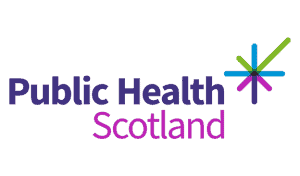
- enhance understanding of Scotland’s health and how to improve it
- contribute our expertise to policy-makers
- lead the delivery of health improvement programmes
- disseminate evidence, learning and good practice
- establish practical arrangements for working with NHS Boards and other key partners
Our staff are drawn from a broad range of professional backgrounds. These include: health promotion, public health, medicine, nursing, the behavioural sciences, research specialists, training managers, topic specialists, health information specialists, librarians, information managers, publishing specialists, graphic designers, advertising and PR professionals, project managers, administrators, HR managers and finance managers.
The organisation has four directorates:
It is made up of four directorates:
- Data and Digital Innovation
- Place and Wellbeing
- Clinical and Protecting Health
- Strategy, Governance and Performance
NHS Health Scotland also includes the Scottish Centre for Healthy Working Lives. Together we provide professional leadership and support for specific aspects of the health improvement effort in Scotland.
Slovakia
The Ministry is the central government body for
- healthcare
- health
- public health insurance,
- further training of healthcare professionals,
- natural healing baths, natural healing resources, natural mineral waters,
- pricing policy on prices of products, services and services in health care and on prices for renting non-residential premises in healthcare facilities,
- control of the prohibition of biological weapons.
Slovenia
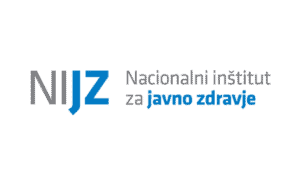
The National Institute of Public Health of the Republic of Slovenia is interested in the following work areas: Alcohol, Child Health, Communicable Diseases, Drugs and substance Abuse, Environmental Health, Food Policy, gender, Health Impact Assessment, Health Systems, HIV/AIDS and Sexual Health, Mental Health, Nutrition, Physical Activity and Tobacco.
In the context of the project ‘Capacity Building for health promotion in Central and Eastern Europe’, the institute elaborated a brief profile of the situation with respect to health promotion in Slovenia: Health promotion in Slovenia as well a Capacity Plan for health promotion.
Spain

- The preparation of the proposals for health objectives of the Basque Health Plan
- The development, implementation and evaluation of health protection policies related to food health, both in aspects of food security and healthy eating, and enviornmental health, including among other areas drinking water and bathing water.
- Surveillance and epidemiological analysis of health and its determinants, as well as the incidence of diseases and their distribution in different population groups.
- The prevention of diseases and the promotion of health through the design and execution of vertical programs or the incorporation of actions in care services aimed at these objectives.

Fisabio integrates and manages the Health Research Map of the Centre for Public Health Research, Dr. Peset University Hospital Foundation, Alicante University General Hospital Foundation, Elche University General Hospital Foundation, and the Mediterranean Ophthalmological Foundation. In addition, it assumes the scientific activity of other 18 Health Departments.
Fisabio provides service to more than 1,500 healthcare professionals within the Valencia network, who are specialists working in research projects and clinical trials managed by the Foundation.
From July 2013, Fisabio also provides Ophthalmological Assistance, a service which, up till now, was being carried out by the Ophthalmology Mediterranean Foundation (FOM).
Among Fisabio's main objectives are:
- To facilitate, promote, develop and execute research according to existing research plans in the Valencia Department of Health.
- To act as scientific and technical research and innovation driving agent, providing the necessary basis to promote interaction between research teams located in Universities, Hospitals, the Scientific Research Council and other similar institutions.
- To facilitate and promote the training of professionals and researchers within the Health field.
To perform and promote all type of studies that generate knowledge in the field of health care and health in general. - To cooperate and develop healthcare activities.

Sweden

The agency was established on January 1, 2014 and is a merger of the Swedish National Institute of Public Health and the Swedish Institute for Communicable Diseases. Most of work concerning environmental health at the National Board of Health and Welfare was also transferred to the new agency.
The aim of the agency is to develop a national knowledge support thereby promoting public health practice in society and making it more effective. The main tasks are to identify and highlight public health issues where effective interventions can be made and to secure preconditions for health on equal terms by monitoring the development of public health and analyzing the effect of important determinants. The agency will also monitor the development of public health interventions, promote health and prevent diseases and support communicable disease control.
Wales / United Kingdom
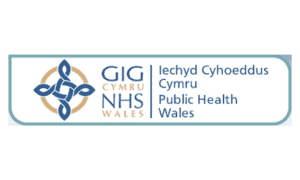
Public Health Wales has four statutory functions:
- To provide and manage a range of public health, health protection, healthcare improvement, health advisory, child protection and microbiological laboratory services and services relating to the surveillance, prevention and control of communicable diseases;
- To develop and maintain arrangements for making information about matters related to the protection and improvement of health in Wales available to the public; to undertake and commission research into such matters and to contribute to the provision and development of training in such matters;
- To undertake the systematic collection, analysis and dissemination of information about the health of the people of Wales in particular including cancer incidence, mortality and survival; and prevalence of congenital anomalies; and
- To provide, manage, monitor, evaluate and conduct research into screening of health conditions and screening of health related matters.
Research Associate Members
Belgium
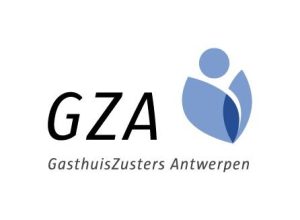
AHLEC brings together experts in health law and bioethics from all Belgian universities, and collaborates closely with medical professionals from university and regional hospitals, researchers in medical sociology, the Council of the Belgian Medical Association, major health law firms, and Flemish and Belgian public health authorities.
AHLEC offers expertise in many topics at the intersection of health law and bioethics (mainly from the Belgian perspective), especially with the aim to reduce health inequities and improve access to healthcare while safeguarding patient and human rights.

institution. It ensures higher education for over 25.000 students at graduate and undergraduate level at five campuses. It offers profession-oriented programmes in six fields of study, among which are Applied Social Sciences, Health Care and Education.
VIVES also encompasses 17 research groups (among which are Inclusive Society, Health Promotion, and Inclusive Learning) where over 160 researchers conduct innovative research. Its research is characterised by a
hands-on approach in close collaboration with companies and organisations throughout society, offering solutions to today's wicked problems and integrating improved knowledge and skills in our educational programmes.
Cyprus

- The purpose of the Cyprus Health Services Research Centre is:
to study the health care systems and their reforms. - bring new ideas and frameworks for understanding and tackling public health problems.
- answer key questions about how health care works and how it can be made better, fairer, more accessible, and available to those who need it most.
- create synergies in the healthcare research sector by providing a common platform for the healthcare and healthcare research community.
The Centre has expertise in Health and Social Care Research and Training with collaborations with Universities at a national level and European level.
England / United Kingdom
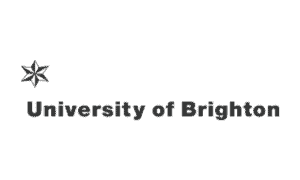
The CDRG conducts research on the effects of unhealthy commodities, and on the tactics used by their manufacturers. It also researches the misinformation strategies used by harmful industries. Their research includes:
- Corporate/commercial tactics to influence on policy/practice/science, including the use of misinformation
- Analysis/evaluation of the effects of commercial activities, campaigns and products (on health but also on other outcomes – e.g. policymaking, guidelines)
- Conflicts of interest
- Application of methodological approaches e.g. discourse analysis; and
- Systems thinking in research on commercial determinants
Finland

InFLAMES advances preventive healthcare, early diagnostics, and personalized more effective treatments, thereby reducing unnecessary care and supporting sustainable healthcare. Moreover, InFLAMES promotes evidence-based policies and health equity across Europe by leveraging our immunology expertise to influence policy and foster cross-sectoral partnerships for better health outcomes.
Germany


The KLUG advise the German federal government, states, municipalities and stakeholders within the healthcare system on climate protection and climate change adaptation, to introduce climate content into the training and further education of healthcare professionals and network stakeholders across the board throughout society.
Hungary
The three main tasks of the Centre for Epidemiology and Surveillance are the development of innovative surveillance systems, the monitoring and reduction of health inequalities in the field of non-communicable diseases, and contributing to better preparedness and response to health emergencies.
Among the Centre's main research topics, great emphasis is placed on monitoring and reducing of health inequalities, increasing expected healthy life years, and reducing the vulnerability of certain population groups in Hungary. The Centre has made significant contributions to the understanding of the determinants of health inequalities in Hungary through several scientific publications.
In addition, the Centre for Epidemiology and Surveillance has developed a Hungarian Health Observatory (SPATIALEPI or TER-EPI) based on spatial epidemiological methods. The Observatory provides tools for analysing health inequalities and their determinants, defines health priorities for interventions, and supports high-resolution monitoring of the effectiveness of public health interventions in the Hungarian population. This information is made available to policymakers and local public health practitioners.
Italy
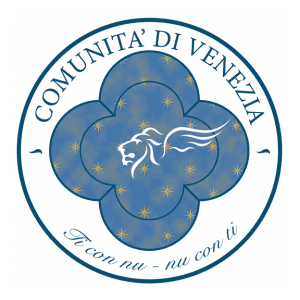

LINKS aims to promote, lead and bolster the innovation processes. We intend to do so through research projects with a strong innovation potential, able to create affect productive and public branches by confronting with an international context.
University of Trieste is a public research university in Trieste in the Friuli Venezia Giulia region in northeast Italy.
The main objectives of the University are scientific research and higher education, in order to promote the cultural, civil, social and economic development in the Italian Republic
Netherlands
Avans University of Applied Sciences was formed in 2004 as the result of a merger between Hogeschool Brabant and Hogeschool Den Bosch. These educational institutions were already working together closely at the time, operating under one Executive Board.
All departments together comprise the 21 Avans schools. This includes the University of Law Avans-Fontys.
At Avans, practice-based research is carried out at 6 centres of applied researchand over 25 research groups.

The School of Sport and Exercise offers education, training, and courses for professionals in sports, work, and health. It aims for a tightly connected triangle of education, research, and professional practice.
The Vitality expertise team is one of the expertise teams within the School of Sports and Exercise. It focuses on what makes people healthy, such as opportunities, dreams, and resources, rather than risks and problems. It does this by genuinely conversing with citizens, employees, clients, and students and being sensitive to context, other perspectives, and equal opportunities. The team also develops tools that enable the target group to master skills, enabling them to shape their active lifestyle and quality of life. READ MORE

CAPHRI is organised along six thematic-oriented research lines in which researchers from different departments operate together in multidisciplinary teams. CAPHRI attracts top scientists from around the world and is known for its comprehensive PhD training programme for young talented scientists. CAPHRI values the quality of its research and has therefore its own quality assurance system, with a quality officer and guidelines for research conduct and auditing.
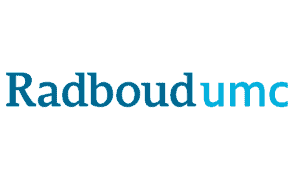
Radboud university medical center cannot and does not aim to achieve these ambitions on its own. They are convinced of the strength of a sustainable collaborative network with hospitals, health-care centers and knowledge facilities, primary care professionals and other partners.
They are evolving from a university medical center into an academic medical network. Radboud university medical center is taking the lead in this network, which always starts with a joint vision and shared values, and with respect for everyone’s strengths, profile and identity.
In close consultation with this network, the Radboud university medical center will reach joint agreements on how to share and develop knowledge, expertise and facilities, make decisions on who can provide specific types of care, and how they can jointly add value for each patient.
They also share research and teaching responsibilities to the best of their ability. Demonstrably high quality and accessibility of care are the priorities in the networks. In this way, they can achieve their ultimate objective: providing the best and most sustainable care for all patients; close to the patient if possible, further away if necessary.
North Macedonia

The institute is the leading national public health scientific institution in the country and teaches basis of the Medical Faculty for the subjects of public health: social medicine (including health promotion), environmental health, epidemiology and occupational medicine.
Its mission is the improvement of the population’s health through control and prevention of diseases, injuries and violence, at all. levels and in all environments, with key activities like health statistics, healthy lifestyle and diseases prevention, health promotion, Health Campaigns and cancer screening programs, Public Health Policy Development, Research in Public Health, Teaching and training, Environmental Health risk assessment, Communicable and noncommunicable diseases surveillance, Health Impact Assessment.
Norway
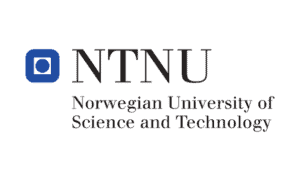
The faculty prioritizes research of high international quality, multi-disciplinary research and externally financed research, especially EU-financed research. The research is directed towards innovation and entrepreneurship.
OsloMet aspires to play a leading role as a provider of research-based knowledge related to the welfare state, in Norway and abroad.

The Faculty of Health and Social Sciences aims to contribute to better health and welfare services for patients and users in all situations and phases of life through education and research. The faculty comprises Departments for Health and Caring sciences, Health and Functioning, and Welfare and Participation, and the Centre for Care Research, west.
Poland
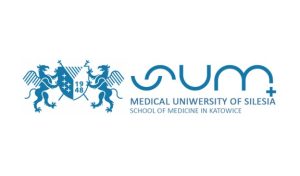
Public health is one of the University’s priorities. Giving candidates the opportunity to gives candidates for studies the opportunity to choose education in one of five fields of
study:
- occupational health and safety
- dietetics
- medical coordinator
- health risk management
- public health
Portugal
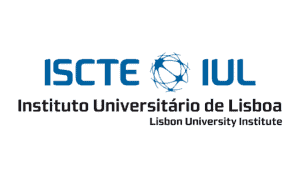
The general goal of H4A is to do reserach and develop interventions from a psychosocial approach to health, as defined by the World Health Organisation.

Egas Moniz has been certified in accordance with the ISO 9001:2008 Standard since 2010 and it is the body that set up the Egas Moniz Higher Institute of Health Science (University) and the Egas Moniz Higher School of Health (Polytechnic) focusing on training health care professionals and likewise setting itself as a centre for social responsibility, heavily implanted in the local community through the provision of medical care.
As an academic institution, our activity is educational and scientific, and we are backed by a teaching body of over 400 highly qualified teachers, who take part in scientific research projects in partnership with national and foreign institutions.
Spain
The Andalusian School of Public Health is a collaborating center of the World Health Organization and the Pan American Health Organization.
The School also works for professional societies, hospitals and regional health services throughout Spain as well as for third countries through projects of the European Union and the World Bank. Through its Teaching, Consulting and Research projects, the School integrates public health and management approaches, through which
- It generates new knowledge and disseminates it among members of health organisations.
- It develops a continuous process of updating knowledge in response to variations in social demands and the evolution of health systems.
- Identifies the relevant knowledge existing in organizations and the information flows necessary for its transmission.
- It creates spaces for the exchange and circulation of information and facilitates the transfer between the people who need it and those who generate it.
- Materialize knowledge by creating products, services and systems and implementing them in organisations.
The Public Health Department of the Balearic Islands is part of the Health Department of the Regional Government of the Balearic Islands.
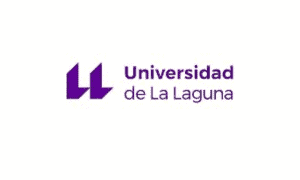
Sweden
The Health and Life Science business area offers innovation infrastructure able to provide the best possible opportunities for businesses and the public sector to manage the journey of reform that is required for sustainability and competitiveness.
The business area focuses on five areas:
- Digital health: Explores and develops the application possibilities afforded by digitalisation in health and care, and Life Science in general.
- Future health and care: Supports the development of long-term sustainable health and care by, for example, shaping cross-sectoral collaborations between regions, municipalities, trade and industry, and civil society based on the needs of the individual.
- Infection control: Supports the capability of society and trade and industry to combat the propagation of resistant microorganisms.
- New therapies: Focuses on advanced therapy medicinal products (ATMPs) and contributes to solutions to the challenges that researchers, doctors and companies face in their daily work with ATMP development.
- Preventative healthcare: Brings together researchers, social partners and industry in research and innovation projects with the aim of preventing disease and mental ill-health.
Wales / United Kingdom

The United Nations Sustainable Development Goals (2015) and the Wellbeing of Future Generations (Wales) Act (2015) are paramount to CAWR’s focus, these specific areas of interest include:
- Prevention, treatment and management of non-communicable diseases (NCD’s)
- Physical inactivity
- Mental health and quality of life
- Physical health and its education across the lifespan
- Overweight/obesity
Policy Associate Members
Cyprus

- The purpose of the Cyprus Health Services Research Centre is:
to study the health care systems and their reforms. - bring new ideas and frameworks for understanding and tackling public health problems.
- answer key questions about how health care works and how it can be made better, fairer, more accessible, and available to those who need it most.
- create synergies in the healthcare research sector by providing a common platform for the healthcare and healthcare research community.
The Centre has expertise in Health and Social Care Research and Training with collaborations with Universities at a national level and European level.
Denmark
DEFACTUM is a department of research and consultancy within the Central Denmark Region, where it works with the Social & Health Service and the Labour Market. It strives to establish links between Research & development, Practice and Policy.
DEFACTUM Research and Consultancy aims to lead in applied research and development within social and health services and labour market issues. It is a part of the Central Denmark Region, one of five Danish administrative regions, politically-led by a regional council with elected politicians.
DEFACTUM contributes to the development of future welfare solutions in Denmark.
England / United Kingdom
The CDRG conducts research on the effects of unhealthy commodities, and on the tactics used by their manufacturers. It also researches the misinformation strategies used by harmful industries. Their research includes:
- Corporate/commercial tactics to influence on policy/practice/science, including the use of misinformation
- Analysis/evaluation of the effects of commercial activities, campaigns and products (on health but also on other outcomes – e.g. policymaking, guidelines)
- Conflicts of interest
- Application of methodological approaches e.g. discourse analysis; and
- Systems thinking in research on commercial determinants
Europe
The Council for Occupational Therapists for the European Countries (COTEC) is a non-profit organisation (NGO) and represents 33 European Occupational Therapy Associations and more than 215,000 Occupational Therapists. It was established in 1986 with the purpose of coordinating the views of the National Associations of Occupational Therapy in Europe. The aim of COTEC is to enable National Associations of Occupational Therapists to work together to develop, harmonise and improve standards of professional practice and advance the theory of Occupational Therapy throughout Europe to best address the social and health issues affecting European citizens. COTEC strives to make Occupational Therapy visible, valued, accessible and available for all European citizens by supporting its members and by collaborating on a European level. COTEC is a regional group of the World Federation of Occupational Therapists (WFOT).

EIWH's objective is to promote the advancement of education and public awareness of women’s and family health issues throughout Europe by conducting research, carrying out surveys, establishing and delivering training programmes, seminars and conferences on all aspects of healthcare.
In striving to achieve the highest standard of health for all, our society’s health policies must recognise that women have specific needs and are faced with various obstacles and opportunities. Women’s health is influenced by a range of factors including gender-based violence, discrimination, the gender pay gap and harmful gender roles and expectations.
This requires a sex and gender-sensitive approach to research and policy. Over the years, the EIWH has worked closely with the European Commission, Member States and the World Health Organization to place gender mainstreaming on the health and research agendas.
Finland

InFLAMES advances preventive healthcare, early diagnostics, and personalized more effective treatments, thereby reducing unnecessary care and supporting sustainable healthcare. Moreover, InFLAMES promotes evidence-based policies and health equity across Europe by leveraging our immunology expertise to influence policy and foster cross-sectoral partnerships for better health outcomes.
Germany

The KLUG advise the German federal government, states, municipalities and stakeholders within the healthcare system on climate protection and climate change adaptation, to introduce climate content into the training and further education of healthcare professionals and network stakeholders across the board throughout society.
Netherlands

Mental health promotion and prevention of illness is of the utmost importance for a sustainable (mental) health care. De Nederlandse ggz strives for equality of mental and physical health promotion and prvention in European policies.

Spain
The Public Health Department of the Balearic Islands is part of the Health Department of the Regional Government of the Balearic Islands.
Sweden

Wales / United Kingdom

The United Nations Sustainable Development Goals (2015) and the Wellbeing of Future Generations (Wales) Act (2015) are paramount to CAWR’s focus, these specific areas of interest include:
- Prevention, treatment and management of non-communicable diseases (NCD’s)
- Physical inactivity
- Mental health and quality of life
- Physical health and its education across the lifespan
- Overweight/obesity
Practice Associate Members
Denmark

The Committee is one of the largest publishers in Denmark – and one of a kind also. It is an explorer and bridgebuilder; willing to also investigate, innovate, and inspire.
Based in Copenhagen, the Committee for Health Education tries to connect people with knowledge and knowledge with people to make sure good research, ideas, and best practices are shared and used.
DEFACTUM is a department of research and consultancy within the Central Denmark Region, where it works with the Social & Health Service and the Labour Market. It strives to establish links between Research & development, Practice and Policy.
DEFACTUM Research and Consultancy aims to lead in applied research and development within social and health services and labour market issues. It is a part of the Central Denmark Region, one of five Danish administrative regions, politically-led by a regional council with elected politicians.
DEFACTUM contributes to the development of future welfare solutions in Denmark.
The Nordic Wellbeing Academy is a non-profit organisation working to foster interpersonal relations and wellbeing and health literate organisations. It offers consulting for individuals and organisations, builds and conducts educational concepts, builds and coordinates networks, and develops and runs national and international projects.
The academy organises knowledge-sharing networks on relational skills, recovery and rehabilitation, and social responsibility—all to transform mindsets and futures.
While the Nordic Wellbeing Academy is based in Denmark, it works with both Danish, Nordic, and European people, partners, and initiatives. It is engaged in European networks and initiatives like the Nordic Health 2030 Movement, the European Health Futures Forum, and the European Health Union Initiative.
England / United Kingdom
The CDRG conducts research on the effects of unhealthy commodities, and on the tactics used by their manufacturers. It also researches the misinformation strategies used by harmful industries. Their research includes:
- Corporate/commercial tactics to influence on policy/practice/science, including the use of misinformation
- Analysis/evaluation of the effects of commercial activities, campaigns and products (on health but also on other outcomes – e.g. policymaking, guidelines)
- Conflicts of interest
- Application of methodological approaches e.g. discourse analysis; and
- Systems thinking in research on commercial determinants
Europe
The Council for Occupational Therapists for the European Countries (COTEC) is a non-profit organisation (NGO) and represents 33 European Occupational Therapy Associations and more than 215,000 Occupational Therapists. It was established in 1986 with the purpose of coordinating the views of the National Associations of Occupational Therapy in Europe. The aim of COTEC is to enable National Associations of Occupational Therapists to work together to develop, harmonise and improve standards of professional practice and advance the theory of Occupational Therapy throughout Europe to best address the social and health issues affecting European citizens. COTEC strives to make Occupational Therapy visible, valued, accessible and available for all European citizens by supporting its members and by collaborating on a European level. COTEC is a regional group of the World Federation of Occupational Therapists (WFOT).
EPHNA is the most important independent player in the field of nutrition communication in Europe. It makes effective use of the knowledge available in Europe for the purpose of communicating about healthy and sustainable nutrition, stimulating and supporting behavioural change among consumers and food suppliers. By doing so, it helps Europeans adopt healthy and sustainable dietary patterns.
As a member of EuroHealthNet, EPHNA works to put the topic of nutrition and healthy and sustainable food systems higher on the European Agenda. This is increasingly important, as our societies turn more and more obesogenic.
EPHNA’s members are national and regional centres responsible for education and communication on healthy, sustainable and/or safe nutrition in their country or region.
Special Olympics is a global sports and health organisation dedicated to children and adults with intellectual and developmental disabilities (IDD). Through programming in sports, health, education and community building, Special Olympics is tackling the inactivity, stigma, isolation, and health disparities that people with IDD face.
Its work goes far beyond sport events, we invest in a variety of health, fitness and well-being programs for Special Olympics athletes and all people with IDD including health screenings through our Healthy Athletes program, inclusive health and fitness programs on community level as well education and training for health care professionals, students, families, coaches, care givers and other stakeholders.
Finland

InFLAMES advances preventive healthcare, early diagnostics, and personalized more effective treatments, thereby reducing unnecessary care and supporting sustainable healthcare. Moreover, InFLAMES promotes evidence-based policies and health equity across Europe by leveraging our immunology expertise to influence policy and foster cross-sectoral partnerships for better health outcomes.
Germany

The chs wants to extend its international cooperations and contacts by actively contributing to international research proposals, and is interested to promote its translational capacities into policy and practice as a third mission in the university. In addition, our research foci in the chs (health inequalities, complex public health interventions, health services research, child and adolescent health, health at the workplace, ethics in public health)
Netherlands

Radboud university medical center cannot and does not aim to achieve these ambitions on its own. They are convinced of the strength of a sustainable collaborative network with hospitals, health-care centers and knowledge facilities, primary care professionals and other partners.
They are evolving from a university medical center into an academic medical network. Radboud university medical center is taking the lead in this network, which always starts with a joint vision and shared values, and with respect for everyone’s strengths, profile and identity.
In close consultation with this network, the Radboud university medical center will reach joint agreements on how to share and develop knowledge, expertise and facilities, make decisions on who can provide specific types of care, and how they can jointly add value for each patient.
They also share research and teaching responsibilities to the best of their ability. Demonstrably high quality and accessibility of care are the priorities in the networks. In this way, they can achieve their ultimate objective: providing the best and most sustainable care for all patients; close to the patient if possible, further away if necessary.
Poland

Public health is one of the University’s priorities. Giving candidates the opportunity to gives candidates for studies the opportunity to choose education in one of five fields of
study:
- occupational health and safety
- dietetics
- medical coordinator
- health risk management
- public health
Portugal
Since 1951, the N. S. Bom Sucesso Foundation’s mission has been to promote health and human development. We provide special care to child and maternal health, ensuring a service of excellence regardless of the patients’ socio-economic status.
Our approach includes regular health screenings which enable the early detection and diagnosis of abnormalities, as well as the monitoring and treatment of most cases of identified diseases. It also includes health education activities, in order to provide each patient and family the necessary information for the adoption of healthy behaviors and lifestyles.
To stimulate child development through health promotion is critical for the human development. This is the vision that guides the Foundation to provide a model of healthcare services based on best practices of preventive medicine and nursing, acting prematurely, preventing and managing disease.

Egas Moniz has been certified in accordance with the ISO 9001:2008 Standard since 2010 and it is the body that set up the Egas Moniz Higher Institute of Health Science (University) and the Egas Moniz Higher School of Health (Polytechnic) focusing on training health care professionals and likewise setting itself as a centre for social responsibility, heavily implanted in the local community through the provision of medical care.
As an academic institution, our activity is educational and scientific, and we are backed by a teaching body of over 400 highly qualified teachers, who take part in scientific research projects in partnership with national and foreign institutions.
Spain
The Public Health Department of the Balearic Islands is part of the Health Department of the Regional Government of the Balearic Islands.
Sweden

Wales / United Kingdom

The United Nations Sustainable Development Goals (2015) and the Wellbeing of Future Generations (Wales) Act (2015) are paramount to CAWR’s focus, these specific areas of interest include:
- Prevention, treatment and management of non-communicable diseases (NCD’s)
- Physical inactivity
- Mental health and quality of life
- Physical health and its education across the lifespan
- Overweight/obesity
Observers
Austria
The Austrian Federal Ministry of Social Affairs, Health, Care and Consumer Protection is the ministry in charge of welfare policy in Austria.
Belgium
The Federal Public Service (FPS) Health, Food Chain Safety and Environment was set up in 2001. Its competencies were transferred from :
- the former Ministry of Social Affairs, Health and Environment
- the regionalized Ministry of Agriculture
The following scientific establishments are linked to the FPS and carry out research into policy-supporting matters or issue advisory reports :
- Sciensano, Federal Research Centre
- SHC, Superior Health Council
The Federal Agency for Food Chain Security is responsible for all verifications with regard to food safety.
England / United Kingdom
The Department of Health and Social Care are responsible for:
- supporting and advising our ministers: we help them shape and deliver policy that delivers the government’s objectives
- setting direction: we anticipate the future and lead debate ensuring we protect and improve global and domestic health
- accountability: we make sure the department and our arm’s length bodies deliver on our agreed plans and commitments
- acting as guardians of the health and care framework: we make sure the legislative, financial, administrative and policy frameworks are fit for purpose and work together
- troubleshooting: in the last resort, the public and Parliament expect us to take the action needed to resolve crucial and complex issues
Lithuania
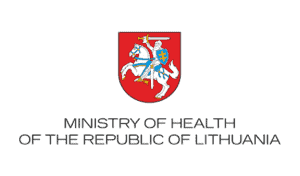
Malta
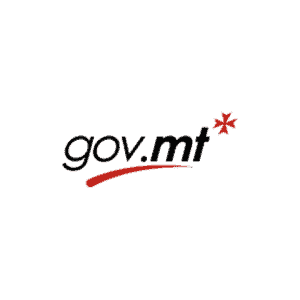
The Superintendent of Public Health gives direction to the directorates falling within the Superintendence of Public Health including the Environmental Health Directorate, Health Promotion and Disease Prevention Directorate and the Health Care standards Directorate.
Moldova

Romania

The public health NIHP’s profile as an institution aiming to deliver activities for prevention, surveillance and control of communicable and non-communicable diseases, health promotion and education for health is appropriately matching the tasks in the proposal.
Ukraine
The Ministry of Health of Ukraine is the central executive body of Ukraine in the field of healthcare. The Ministry of Health ensures the formation and implementation of the state policy in the field of healthcare, combating HIV/AIDS and other socially dangerous diseases. Its mission is to formulate and implement healthcare policy that ensures public health, quality and affordable medical care.
The Ministry ensures the formation and implementation of the state policy in the field of creation and quality control and sale of medicines, in the field of circulation of narcotic drugs, psychotropic substances, their analogues and precursors, counteraction to their illicit trafficking, and also ensures the formation of the state policy in the field of sanitary and epidemiological welfare of the population. READ MORE





 Engages with EU Institutions and European partners to develop a strategic approach to EU policy development on behalf of our stakeholders.
Engages with EU Institutions and European partners to develop a strategic approach to EU policy development on behalf of our stakeholders.



